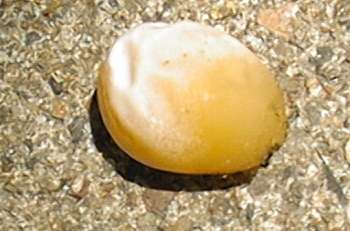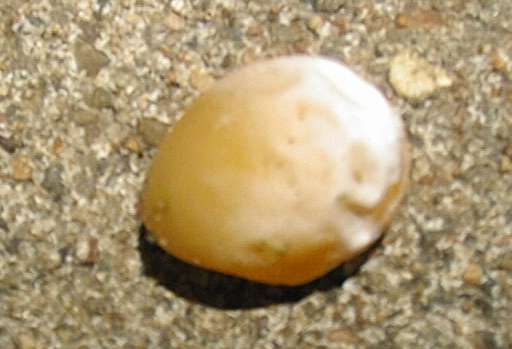

These soft shelled eggs have dried somewhat; when first laid soft shelled eggs are quite pliable.
The problem of a hen laying soft shelled eggs (an egg without the hard exterior shell) can be traced directly to a deficiency of calcium in the hen's system. This calcium deficiency can be corrected by adding calcium to the bird's diet. Using a dry or liquid calcium supplements, fine ground oyster shell is an excellent source & also contains other minerals a bird's system needs. If this problem is neglected it is possible that the egg membrane may burst inside the bird's body & cause more problems & even death is possible.


These soft shelled eggs have dried somewhat; when first laid soft shelled
eggs are quite pliable.
A very good source for information is to locate the books on this subject by Robert Black. His book on avian nutrition is titled: Avian Nutrition (IDS Book page). He has studied avian nutrition & deficiencies for many years. A bird must have Vitamin D3 daily in it's diet.
vitamin D3 is not available in any seed diet or any type of plant foods. It is found in the foods form the animal kingdom, such as eggs and insects. Along with this & direct sunlight the bird's body can absorb the vitamins, etc. it's body needs. If there is a lack of D3 it can lead to soft shelled eggs, weak bones etc. The "calcium deficiency" is not restricted to only the females, it can affect males as well.
American Dove Association members can read several
articles by Robert Black.
ADA Bulletin DOVELINE: March/April 2007 - egg mixes
ADA Bulletin DOVELINE: May/June 2007 - Avian Nutrition
Use your browsers "back" button to return to the previous page.